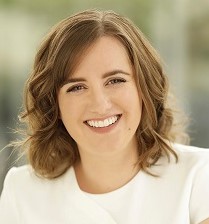What is Child Centered Play Therapy?
Play – the process of engaging in an activity for enjoyment and recreation. This is the foundation of a child’s life. There is essentially no goal to play, it is essentially a creative outlet where children are able to explore their minds. So, how does this relate to therapy? Child-centered Therapy is essentially about the therapist relating to the child through their play to allow them to engage in self-exploration and self-discovery thus facilitating a healing process. Adults use words to communicate this process with their therapist, however, children have not yet developed this extensive vocabulary or the events took place at a time when they did not have the vocabulary. What children do have, however, and what they can communicate with very effectively with, is toys. Toys are their language and this is how they will establish a connection with the therapist and facilitate a healing process.
How Does it Work?
The basic aspect of how child-centered therapy works is through the relationship with the therapist. It is through this relationship that a child is able to explore themselves using toys. While doing this they can identify and explore emotions, learn to bring these emotions under control, integrate these emotions and realize their full potential. The key is the relationship with the therapist and the communication through the toys. As a therapist, it is my job to understand their experiences and perceptions about themselves that they are communicating through their playing and communicate this understanding.
What are the Stages?
Whilst participating in Child Centered Therapy, children will progress through four stages as they work through a change process.
Warm-up stage: This is the stage at which a relationship is formed with the therapist. This is the time in which the child comes to understand their role, the role of the therapist and possibilities that are present in the playroom. It is also an important time where a sense of safety and security is developed between therapist and child which encourages the expression of their experiences.
Aggressive stage: Now this does sound scary but this doesn’t always mean aggressive behavior. What this refers to is the process by which children work through the acceptance of limits and a need for control over others. This can present as an expression of deep aggressive tendencies but this does not always mean physical aggression. It may simply mean that a child leaves the playroom in a mess when previously they wouldn’t. It is also not surprising that during this stage children begin to refuse to come to therapy, either before you’ve even gotten in the care or refusing to enter the play room. As a parent it’s important that you are willing to walk through this challenging time rather than simply walk away in order for play therapy to be successful.
Regressive stage: this is where children are exploring issues associated with their attachment and sense of belonging. This play can often appear younger than expected for their age.
Mastery stage: This is essentially were a child integrates all the previous stages into their personality to work on issues associated with competence in social and emotional regulation. This signals that the time is approaching to end therapy. Signals that this time has approached is when the child’s play is age appropriate, there is no conflict or disturbance in their play and they may even become ambivalent about engaging in play with the therapist and want to play with their peers.
How Successful is it?
In a more general sense examining an impact on externalizing and internalizing behaviours and social skills, research on Child Centered Play Therapy has yielded positive results (Landreth, 2012). More specifically, research has shown strong support in the treatment of behavioural disorders, anxiety disorders, trauma, and depression.
 Author: Sharyn Jones, B Psych (Hons).
Author: Sharyn Jones, B Psych (Hons).
Sharyn Jones is a Brisbane psychologist with 10 years of experience working with adults, adolescents, children and their parents. Using a combination of cognitive behavioural and solution focused therapies, she aims to facilitate positive changes in client’s lives so that they can achieve and obtain their desired goals.
To make an appointment with Brisbane Psychologist Sharyn Jones, try Online Booking – Wishart. Alternatively, you can call Vision Psychology Brisbane on (07) 3088 5422.
References:
Cochran, J.K., Cochran, N.H., Nordling, W.J., McAdam, A., Miller, D.T. (2010). Monitoring two boys’ processes through the stages of child-centered play therapy. International Journal of Play Therapy, 19 (2), 106-116.
Landreth, G.L. (2012). Play therapy: The art of the relationship. New York: Routledge
Parker, M.M., Hollenbaugh, M.H., Kelly, C.T. (2021). Exploring the impact of child-centered play therapy for children exhibiting behavioural problems: A meta-analysis. International Journal of Play Therapy, 30 (4), 259-271.